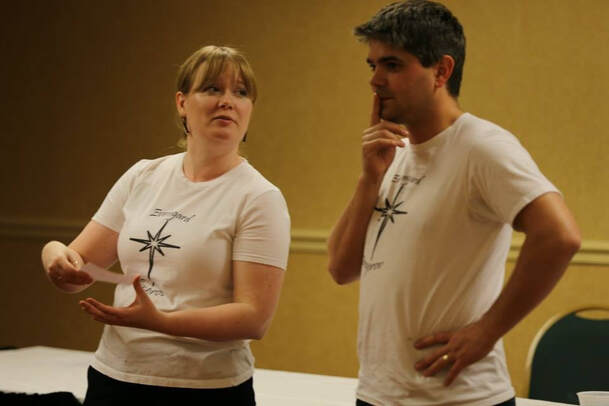|
Most of the time when you think about choices in acting, it is self-driven motivations and discoveries that come to mind. However, re-acting is an equally important element of performance, where you consider how your character will respond to the situations and other characters around them.
Reacting in opposing ways can add great complexity to a character. Perhaps they are an overbearing, antagonistic boss, but when their wife or mother appears, they become sheepish and submissive. Perhaps the character is easily manipulated and taken advantage of by others in positions of power, but they command total control over their own household or domain. Discovering how your character addresses conflict, confusion, or unforeseen circumstances will give you a great depth of insight into their construction, and add a rich layer to your portrayal. Here are some questions to consider:
Of course the questions you ask about your character’s reactions will be largely determined by the scenes, setting, and play you are participating in, but hopefully this is a good starting point for you to build from. One of my favorite examples of re-acting and how it can dynamically change a scene is in the television show “Black Books”. The character of Bernard, played by Dylan Moran, is a cantankerous curmudgeon that can’t stand most people and his reactions to them fit accordingly. His response style does not change throughout much of the series, except in one particular episode, when he meets a charming male explorer. Bernard’s reaction to this man is completely out of the norm. He is giddy, polite, considerate, even flirtatious. This made it a spectacular performance to watch, because his response to this new player was nothing that we as an audience had come to expect. So have fun exploring how you will not only act, but re-act as your character, and break a leg. -L.N. |
Details
Categories
All
Archives
June 2023
|


 RSS Feed
RSS Feed